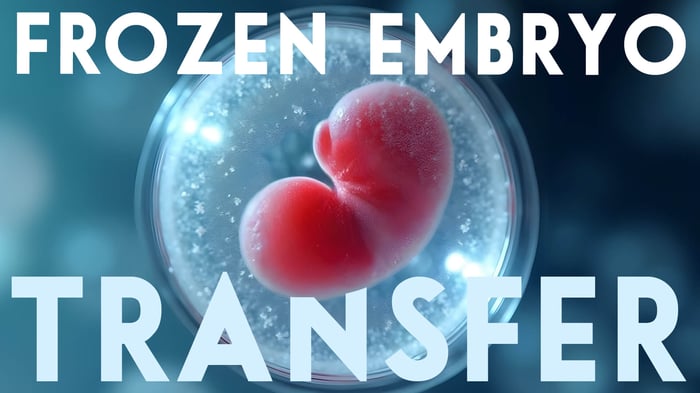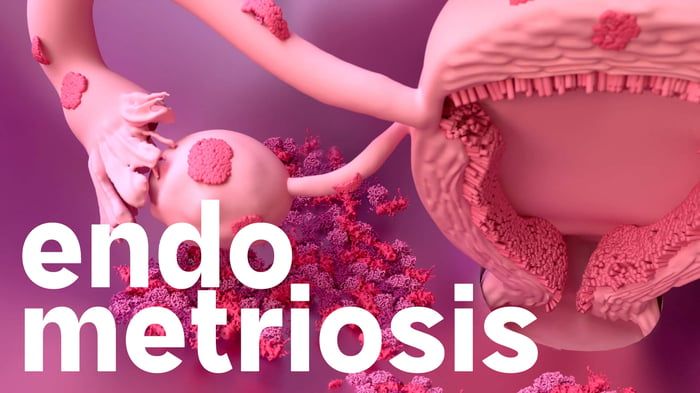Menopause can be a confusing subject, especially with the endless stream of information (and misinformation) that floats around. Whether you’re just starting to notice subtle shifts in your body or you’re knee-deep in hot flashes, rest assured—this transition is a natural part of life. In this blog post, we’ll tackle five common menopause myths, explore what menopause really is, and offer practical tips for navigating this journey.
We’ve divided this guide into nine chapters to help you find exactly what you’re looking for:
- You Are Not Alone!
- What Is Menopause?
- When It Officially Starts
- Perimenopause
- Ways to Handle These Changes
- Hormone Replacement Therapy
- Natural Remedies and Lifestyle Changes
- Dietary Adjustments
- Mental and Emotional Well-Being
Let’s jump in and bust some menopause myths along the way!
1. You Are Not Alone!
Feeling isolated in your experience is one of the most common challenges people face when going through menopause. Despite the sense that your body is betraying you or that no one else understands, remember that millions of women around the world share these changes each year. On average, the age range for menopause is between 45 and 55, but the experience varies widely.
Myth #1: You Must Suffer in Silence
Many believe that menopause symptoms should be endured quietly. According to Dr. Jenna Saunders, a board-certified gynecologist with over 20 years of experience, “Communicating openly with friends, family, and healthcare professionals is crucial. No one should suffer in silence or feel shame over what is essentially a natural transition.” Feeling supported can significantly ease your stress and even lessen the intensity of symptoms.
2. What Is Menopause?
Menopause is the time in a woman’s life that marks the end of her menstrual cycles and reproductive years. Clinically, it’s diagnosed after 12 consecutive months without a menstrual period. During this process, the ovaries gradually produce less estrogen and progesterone, two hormones that regulate the menstrual cycle.
However, it’s important to recognize that menopause is not a disease or an abrupt event—it’s a milestone that can signify a new phase of life. For some women, that new phase brings freedom from monthly periods, while for others, it can be accompanied by symptoms like hot flashes, mood swings, and insomnia.
Myth #2: Menopause Means You’re Suddenly “Old”
Some assume that entering menopause immediately means you’ve hit old age. That couldn’t be further from the truth! People are living longer, healthier lives than ever, and menopause simply signals a shift in hormones, not a loss of youthfulness. Dr. Saunders explains, “Age is more about how you feel physically and mentally than a specific milestone. Embracing this transition can lead to better self-awareness and a healthier outlook on aging.”
3. When It Officially Starts
Doctors generally say that menopause officially begins after you’ve gone a full year—12 months—without a period. This is often accompanied by changes in hormone levels, as the ovaries gradually reduce the production of estrogen and progesterone. For many, this process is not sudden; there’s a prelude (perimenopause) and sometimes a postlude (postmenopause) that together span several years.
If you’re curious about whether you’re in menopause, your doctor may recommend a blood test to measure follicle-stimulating hormone (FSH) levels. Elevated FSH levels can be a sign that the ovaries are producing fewer hormones, indicating you’re in or close to menopause.
Myth #3: Menopause Happens Overnight
No, it does not. The body doesn’t typically go from regular cycles to no cycles instantly. There’s a transitional period—perimenopause—where hormones fluctuate significantly, often causing the hallmark symptoms many of us have heard about, such as hot flashes and mood swings. Think of it more like a winding road than a sudden drop-off.
4. Perimenopause
Perimenopause literally translates to “around menopause.” This stage can begin several years before your final menstrual period, often in your 40s, but it can also start in your 30s. During perimenopause, estrogen levels rise and fall inconsistently, and periods may become irregular.
Common symptoms include:
- Hot flashes and night sweats
- Mood swings and irritability
- Sleep disturbances
- Changes in sexual desire
Myth #4: Symptoms Are Always the Same for Everyone
Every woman’s journey through perimenopause and menopause is unique. While there are common symptoms, their frequency and severity can vary dramatically. Dr. Saunders notes, “Some women sail through perimenopause with barely a hot flash, while others experience a rollercoaster of changes.”
5. Ways to Handle These Changes
So, how can you navigate these turbulent waters? First and foremost, acknowledge what you’re feeling. This validation is vital for maintaining a sense of control. Additionally, consider the following strategies:
- Maintain a symptom journal: Track when you experience hot flashes, night sweats, or mood swings. Not only does this help you identify triggers (like caffeine or alcohol), but it can also be a valuable resource to discuss with your healthcare provider.
- Seek social support: Friends, family, and even online communities can provide emotional relief when you need it most.
- Prioritize sleep: Hormonal fluctuations often disrupt sleep. Adopting a consistent bedtime routine and reducing screen time before bed can make a huge difference.
Myth #5: Weight Gain Is Inevitable
Many women assume that weight gain during menopause is unavoidable. While hormonal changes can contribute to shifts in body composition, healthy habits can substantially counteract any extra pounds. Focusing on nutrient-dense foods, regular exercise, and stress management can help you maintain a healthy weight.
6. Hormone Replacement Therapy
Hormone Replacement Therapy (HRT) involves supplementing your body with estrogen (and sometimes progesterone) to replace the hormones that your ovaries are no longer producing at the same levels. HRT can help alleviate symptoms like hot flashes, night sweats, and vaginal dryness. However, it is not a one-size-fits-all solution.
Pros of HRT
- Provides significant relief for severe menopausal symptoms
- May help prevent osteoporosis by maintaining bone density
- Can alleviate vaginal dryness and improve sexual comfort
Cons and Considerations of HRT
- May increase the risk of certain health issues like blood clots, stroke, and certain cancers, particularly when taken long-term
- Not suitable for everyone, especially those with a history of breast cancer or cardiovascular disease
It’s crucial to speak with a qualified medical expert to determine whether HRT is the right choice for you. Dr. Saunders cautions, “The decision to start HRT should be made on an individual basis, considering medical history, family history, and personal preferences.”
7. Natural Remedies and Lifestyle Changes
If you prefer a holistic approach or are unable to take HRT for medical reasons, natural remedies and lifestyle adjustments can help manage menopause symptoms. These include:
- Phytoestrogens: Found in soy products, flaxseeds, and some legumes, these plant-based estrogens can mimic the effects of human estrogen to a mild extent.
- Herbal Supplements: Black cohosh, red clover, and evening primrose oil are popular, though scientific evidence varies. Always consult your doctor before taking supplements, as they may interact with medications.
- Mind-Body Techniques: Yoga, tai chi, and meditation have been reported to reduce stress and hot flashes while improving overall well-being. Deep breathing exercises can also help quell sudden hot flashes.
Remember, what works for one person might not work for another. It may take some experimentation and patience to find the best remedies for your body.
8. Dietary Adjustments
Diet plays a significant role in how you experience menopause. Certain foods can exacerbate symptoms, while others can help lessen them. Here are some quick tips:
- Increase Calcium and Vitamin D: Bone density decreases after menopause, so ensure you’re getting enough calcium (1,000–1,200 mg per day) and vitamin D. Consider foods like dairy, leafy greens, and fortified cereals.
- Opt for Lean Proteins: Chicken, fish, beans, and tofu can stabilize energy levels and support muscle mass, which tends to decline with age and reduced estrogen.
- Limit Refined Sugars and Processed Foods: Spikes and crashes in blood sugar can worsen mood swings and energy levels.
- Stay Hydrated: Water is crucial for regulating body temperature and can help ease bloating and dryness.
According to Dr. Saunders, “A balanced diet rich in whole foods and low in processed ingredients not only helps manage menopausal symptoms but also sets you up for better long-term health.”
9. Mental and Emotional Well-Being
Menopause often comes at a time of significant life changes—children leaving home, career transitions, or caring for aging parents. Couple these stressors with fluctuating hormones, and it’s no wonder moods can swing.
Stress Management
- Mindfulness and Meditation: Carve out even five minutes a day to focus on your breath and center your thoughts.
- Physical Activity: Exercise releases endorphins, the body’s natural mood lifters. Even a short walk can boost your mental outlook.
- Professional Support: If you’re feeling overwhelmed, consider speaking with a therapist or counselor who specializes in midlife transitions.
Building a Positive Mindset
Menopause is not the end of anything; it’s the beginning of a new chapter. Embrace self-care practices, from journaling to enjoying hobbies that you may not have had time for earlier in life. Cultivating an attitude of gratitude can shift your perspective and help you see the possibilities that lie ahead.
Final Thoughts
Menopause may bring physical changes like hot flashes, night sweats, and mood swings, but it also offers an opportunity for growth and self-discovery. The more you learn about what’s happening inside your body, the better prepared you’ll be to manage symptoms and make informed decisions. Whether you turn to HRT, natural remedies, or a mix of both, remember that this is your journey—and you have options.
5 Menopause Myths Recap:
- You must suffer in silence. (Busted: Talk openly and seek support.)
- Menopause means you’re suddenly old. (Busted: It’s just a new phase, not a sign of old age.)
- Menopause happens overnight. (Busted: It’s a gradual transition through perimenopause.)
- Symptoms are always the same for everyone. (Busted: Each woman’s body responds differently.)
- Weight gain is inevitable. (Busted: Lifestyle choices and healthy habits can mitigate weight gain.)
Above all, remember that you’re not alone. Millions of women are experiencing the same transition, and there’s a wealth of knowledge and support available—from medical experts to online communities. Reach out, share your experiences, and continue to educate yourself.
You’ve got this. Here’s to a healthier, happier, and more empowered journey through menopause and beyond!
Related blog articles:
- Ovulation explained
- Naturally Boost Your Fertility
- Fertility and age: The truth about getting pregnant after 35
- Male Factor Infertility
- When is your fertile window?
- How long does it actually take to get pregnant?
- Understanding Your Menstrual Cycle: A Comprehensive Guide
- Ovulation Symptoms: Key Signs & Tracking Tips
- Pregmate App – Ovulation Tracker, Fertility and Period Calculator
- Conception explained: Fertilization and Implantation
- Using ovulation tests to identify the most fertile days of the month
- Your IVF Journey: Navigating the Path of In Vitro Fertilization
- A Comprehensive Guide to Pregnancy Tests: Everything You Need to Know
- Understanding IUI Intrauterine Insemination: A Complete Guide
- Pregmate pregnancy test strips: How and when to do the test
- Tracking LH surge using ovulation tests
- What is PCOS?
- What causes PCOS? Symptoms and signs.
- Using ovulation tests with PCOS
- 5 Menopause Myths BUSTED by a Medical Expert
- Your Complete Guide to Egg and Sperm Freezing
- The Hidden Truth About Endometriosis Every Woman Needs to Know
- How to Use Ovulation Tests to Get Pregnant Faster



